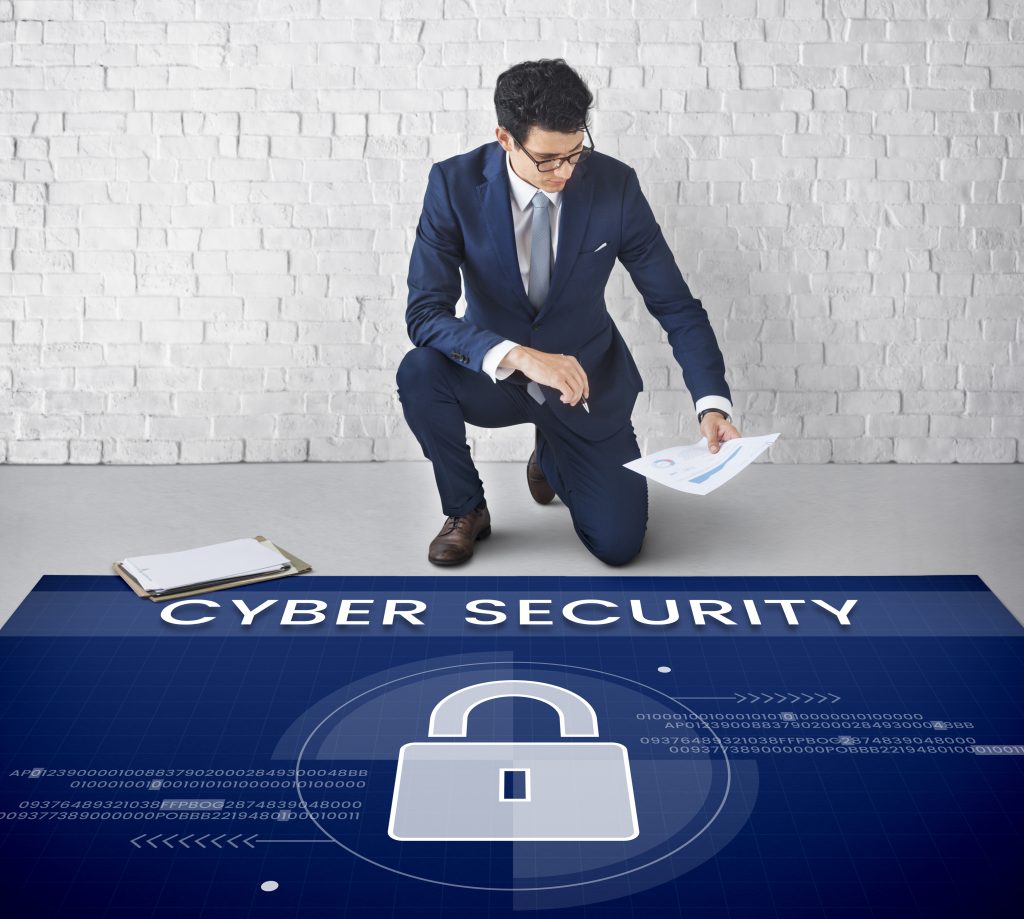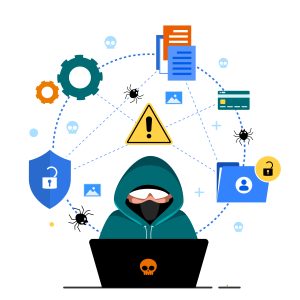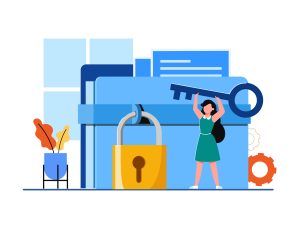Cybersecurity is critical in today’s digital world because of the prevalence of cyber attacks. Cyber attacks can range from relatively harmless phishing scams to more sophisticated attacks that can compromise sensitive information and cause significant financial and reputational damage to individuals and organizations alike. The increasing interconnectedness of devices and networks has made it easier for hackers to launch attacks, and as a result, cybersecurity has become a major concern for individuals, businesses, and governments. Effective cybersecurity measures are essential to protect against a wide range of cyber threats and to safeguard personal and confidential information from unauthorized access, theft, or damage.
Threats In Cyer Security
Phishing Attacks
Phishing is a type of cyber attack in which an attacker tries to trick a user into giving away sensitive information, such as login credentials or financial details. Phishing attacks typically involve sending an email or message that appears to be from a legitimate source, such as a bank or an online service provider, but actually contains a link to a fake website or a malicious attachment.
The goal of a phishing attack is to convince the user to enter their personal or confidential information on the fake website or to download and open the malicious attachment. Once the attacker has obtained this information, they can use it to steal money, commit identity theft, or launch further attacks against the user or their contacts.
Examples of common phishing attacks include:
- Email Phishing
- Spear Phishing
- Smishing
- Vishing
Tips for avoiding phishing attacks include:
- Be cautious with emails
- Use anti-phishing software
- Keep software and security measures up-to-date
- Be skeptical of unsolicited requests for information
- Educate yourself
Malware Attack
Malware is a type of software that is designed to harm computer systems, steal data, or disrupt normal operations.
The term “malware” is short for “malicious software,” and it includes a range of different types of software, such as viruses, worms, trojan horses, spyware, and ransomware.
Malware can harm computer systems in several ways. Here are some examples:
- Stealing Data
- Disrupting Operations
- Ransomware
- Botnets
- Spreading Viruses
Here are some of the most common types of malware:
- Viruses
- Trojans
- Ransomware
- Worms
- Spyware
Here are some tips on how to protect your computer from malware:
- Install antivirus software
- Keep your operating system up-to-date
- Use a firewall
- Use strong passwords
- Be cautious when downloading software
- Be cautious when opening email attachments
- Use a pop-up blocker
Password Security
Strong passwords are a critical aspect of cybersecurity because they help prevent unauthorized access to your online accounts and personal information. Weak passwords, such as those that are easy to guess or use common words or phrases, can be easily cracked by hackers or automated password-guessing programs, leaving your accounts and personal information vulnerable to theft.
To create a strong password, it is important to use a combination of upper and lowercase letters, numbers, and symbols. Avoid using common words or phrases, and avoid using personal information such as your name, birthdate, or address. Instead, consider using a random combination of characters that is difficult to guess.
Here are some tips for creating strong passwords:
- Use a mix of upper and lowercase letters, numbers, and symbols.
- Use a long password (at least 12 characters).
- Avoid using common words or phrases.
- Avoid using personal information such as your name, birthdate, or address.
- Consider using a passphrase, which is a longer string of words that are easy for you to remember but difficult for others to guess.
- Use different passwords for different accounts, to prevent a hacker from accessing multiple accounts if they manage to crack one password.
Password managers are tools that help users generate, store, and manage strong and unique passwords for their online accounts. They eliminate the need for users to remember multiple passwords for different accounts, and they help increase the security of those accounts by ensuring that each password is unique and strong.
There are several benefits to using a password manager:
- Stronger passwords: Password managers can help generate stronger passwords than you might create on your own. They can use a combination of letters, numbers, and symbols to create passwords that are difficult for hackers to crack.
- Unique passwords: Password managers can generate unique passwords for each of your accounts, which means that if one password is compromised, your other accounts will still be safe.
- Convenience: With a password manager, you only need to remember one master password to access all of your other passwords. This makes it easier to use strong, unique passwords for each account.
- Multi-device access: Many password managers allow you to access your passwords across multiple devices, so you can log into your accounts from your phone, tablet, or computer.
In summary, cybersecurity is important because it helps protect computer systems, networks, and sensitive information from cyber attacks, theft, and unauthorized access. The increasing reliance on technology and the internet in our personal and professional lives has also increased the risk of cyber attacks, making cybersecurity a critical aspect of modern life. Cybersecurity helps ensure the confidentiality, integrity, and availability of information, which is important for maintaining privacy, trust, and security in our digital world.







